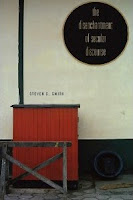 In Start-Up Nation: The Story of Israel’s Economic Miracle, authors Dan Senor and Saul Singer attempt to unravel “where [Israel’s] entrepreneurial energy comes from, where it’s going, how to sustain it, and how other countries can learn from the quintessential start-up nation.” Their goal is a noble one, and bolstered by impressive stats, such as this one: “In 2008, per capita venture capital investments in Israel were 2.5 times greater than in the United States, more than 30 times greater than in Europe, 80 times greater than in China, and 350 times greater than in India.”
In Start-Up Nation: The Story of Israel’s Economic Miracle, authors Dan Senor and Saul Singer attempt to unravel “where [Israel’s] entrepreneurial energy comes from, where it’s going, how to sustain it, and how other countries can learn from the quintessential start-up nation.” Their goal is a noble one, and bolstered by impressive stats, such as this one: “In 2008, per capita venture capital investments in Israel were 2.5 times greater than in the United States, more than 30 times greater than in Europe, 80 times greater than in China, and 350 times greater than in India.”
The authors, in searching for the values and impulses most influential in producing Israel’s creative instincts, found an unlikely source: the Israel Defense Forces (IDF). “In the Israeli military,” they write, “there is a tendency to treat all performance — both successful and unsuccessful — in training and simulations, and sometimes even in battle, as value-neutral. So long as the risk was taken intelligently, and not recklessly, there is something to be learned.” Throughout their research, Senor and Singer return time and again to this same explanation, or some variant, to elaborate on the unique brand of innovation endemic in Israeli society.
What to internationals smacks of brazen effrontery is, at least according to the authors, merely chutzpah, that term so ubiquitous in descriptions of the Jewish people and so often bewildering to those unfamiliar with its meaning. “An outsider would see chutzpah everywhere in Israel: in the way university students speak with their professors, employees challenge their bosses, sergeants question their generals, and clerks second-guess government ministers.” As an American, this disregard for hierarchy has a certain populist appeal, especially as the much-maligned “24-hour news cycle” has helped the government metastasize into an especially cantankerous form of reality television in which competence plays second fiddle to inflammatory rhetoric.
On the other hand, at times the reasons given for Israel’s high growth look suspiciously more nationalistic than realistic. In one passage, an IDF major boasts, “If a terrorist infiltrates [an] area, there’s a company commander whose name is on it. Tell me how many twenty-three-year-olds elsewhere in the world live with that kind of pressure.” Indeed, he has a point. And yet one cannot help but notice that “the most moral army in the world” (as proclaimed by defense minister, and former prime minister, Ehud Barak) has had numerous recent run-ins leading to international condemnation (and possible criminal prosecution). Is this related to the unusually emphatic devolution of autonomy in the military? Perhaps this cannot be answered; and yet this question is left wholly unaddressed, even as the authors continually cite this very same individuality as a boon to the Israeli economy.
Start-Up Nation is a book worth reading, if for no other reason than the generous access afforded the authors by the likes of Israeli president Shimon Peres, prime minister Benjamin Netanyahu, and even American general David Petraeus. The authors’ perspective is one of nearly-unbridled enthusiasm, owing to the vibrant nature of Israel’s start-up scene and the continuing promulgation of its inventive spirit. In this latter endeavor, Dan Senor and Saul Singer join the chaotic Israeli chorus that so deftly mixes fierce national pride with a heaping helping of chutzpah. If theirs is an accurate prognostication, the best has yet to emerge from Israel.







